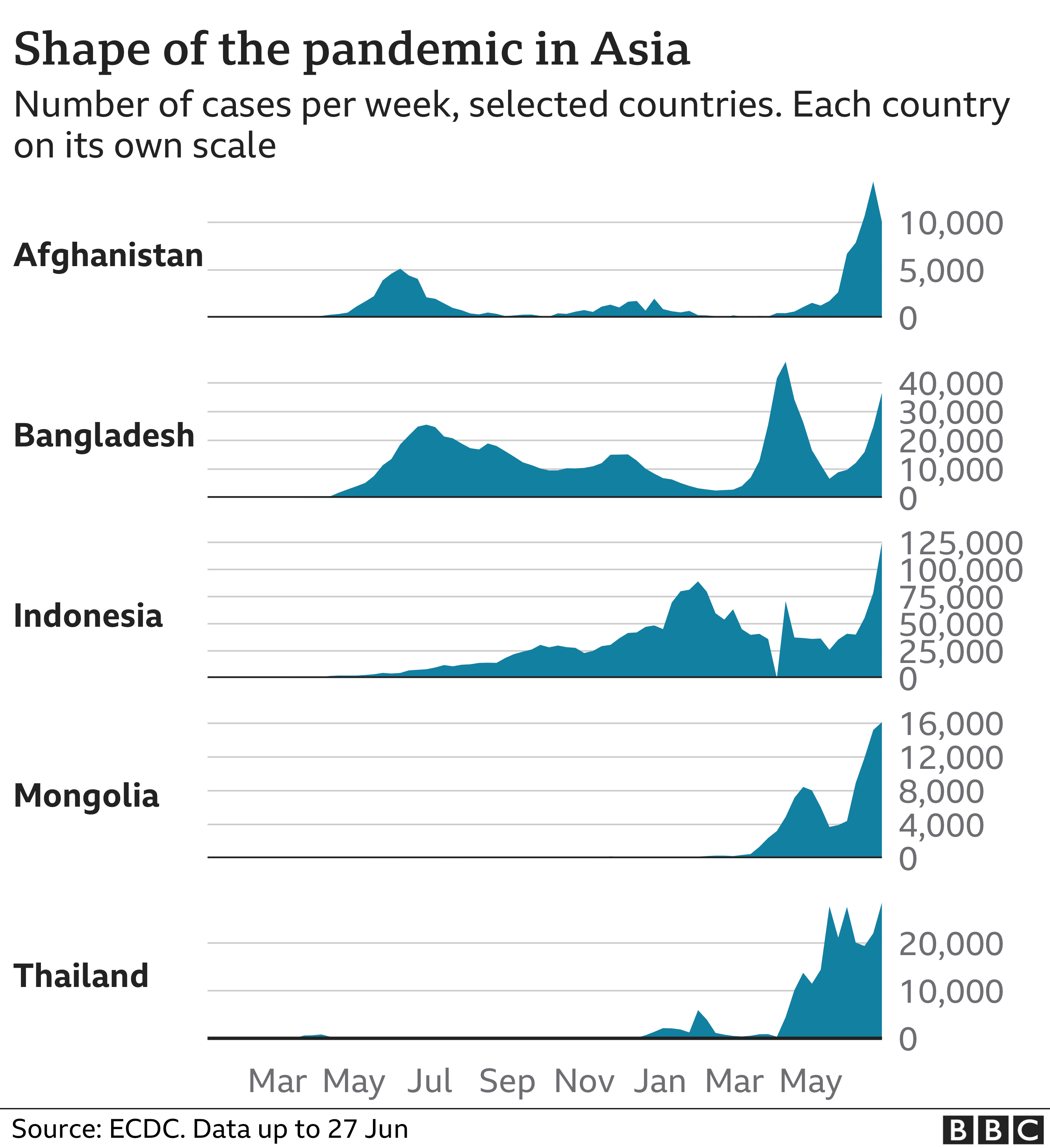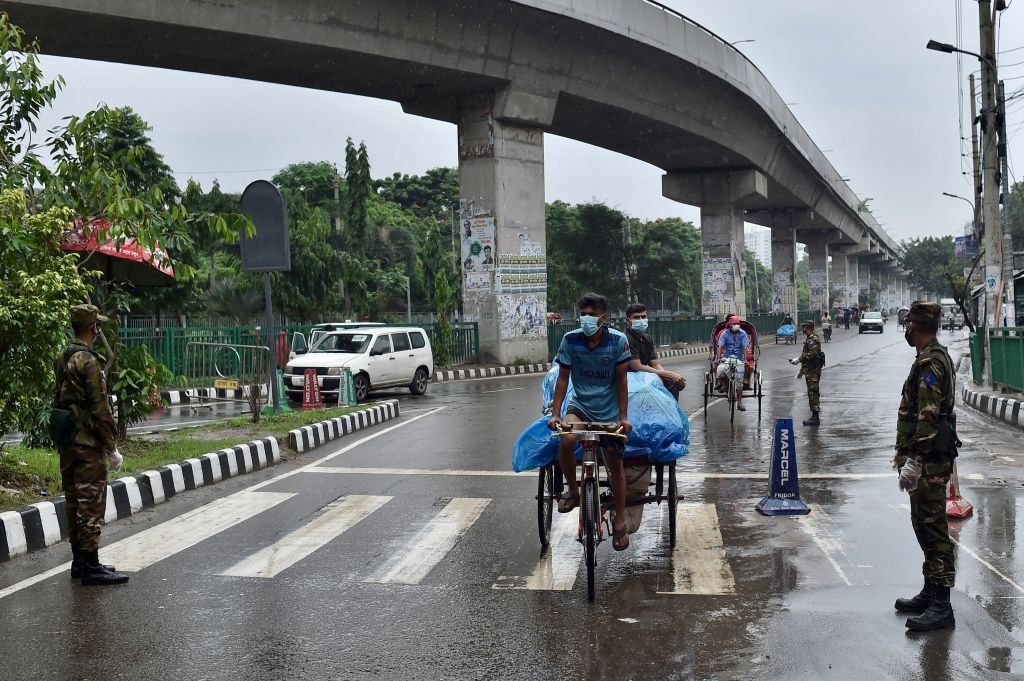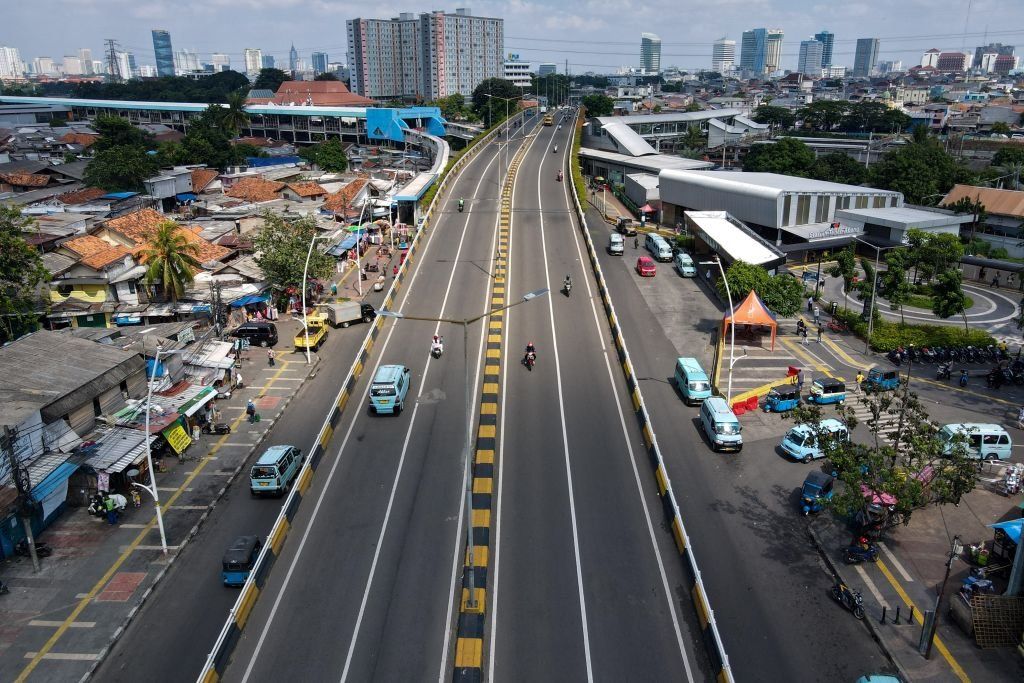India may now be past the peak of its latest coronavirus surge, but some other countries in Asia are experiencing rising infections.
Meanwhile, vaccination rates across the region remain (with some exceptions) generally low, amidst concerns that the Delta variant is spreading.
Where has happened to case numbers?
The World Health Organization (WHO) recently deemed the Delta variant, which originated in India, the “most transmissible of the variants identified so far”
Some of India’s immediate neighbours – Nepal, Pakistan and Sri Lanka – saw surges in infections in May (although they are now seeing downward trends in numbers.)
Nepal was particularly badly hit, with a dramatic surge in infections overwhelming the local health infrastructure.

Afghanistan’s cases were at an all-time high in June and the country’s health minister, Wajid Majrooh, said that 60% of cases in the capital, Kabul, were due to the Delta variant
The WHO has also recently reported rising case numbers in Bangladesh, Indonesia, Thailand and Mongolia.
We’ve looked in more detail at what’s been happening in these countries.
Bangladesh
Bangladesh, which has a long border with India, has experienced an upward trend since mid-May.
A government study looking at the period from 25 May to 7 June showed that 68% of the cases detected in the capital, Dhaka, were of the Delta variant.
It has now implemented a national lockdown, after concerns about the impact of the variant.
Case numbers could climb further as large numbers of migrant workers left the capital, Dhaka, for homes elsewhere ahead of the national lockdown.
Although it was earlier than other countries in starting a vaccination drive, the rollout in Bangladesh has generally been slow, and it had to suspend vaccinations in April.

Bangladesh administered 1.6 million AstraZeneca vaccines, which they received from India.
But then India halted export of the vaccines in April.
Bangladesh resumed vaccinations on 22 June on a limited scale with China’s Sinopharm vaccines received as a donation.
Less than 3% of the population had been fully vaccinated as of 30 June.
Indonesia
Indonesia has also imposed a lockdown in parts of the country until 20 July.
Case numbers and deaths have been rising since early June and the government has attributed this to the Delta variant.
According to the health ministry, testing showed that nearly 60% of cases in the past three weeks were due to the Delta variant.

The pace of vaccinations has risen in the country, but so far less than 5% have been fully vaccinated.
The President, Joko Widodo, has set a target of conducting a million vaccinations a day and doubling that by August.
The International Federation of Red Cross and Red Crescent recently said that the country was near a catastrophe with rising concerns over the availability of hospital beds and oxygen supply.
Thailand
The recent rise in cases and deaths in Thailand has been attributed in part to the Delta variant by the country’s department of medical sciences.
Earlier this week, the department said that in 26% of total cases reported in the capital, Bangkok, in the past week the Delta variant had been identified.
It has recently been detected in islands like Phuket, which is now allowing in foreign visitors in order to boost its tourism industry.
But Thailand had only fully vaccinated around 4% of its population by the end of June.
The Prime Minister, Prayuth Chan-ocha, recently told the media that there were risks but “we have to accept the risk so Thai people can make a living.”
Mongolia
The country has a relatively high level of vaccination with more than 50% of the population fully vaccinated – most with the Chinese-made Sinopharm vaccine.
The high vaccination rate comes after a promise by the government of a “Covid-free summer”.
But recent spikes in cases and deaths have been one of the highest in Asia per head of population.
Some reports have suggested a link between rising case numbers in countries which have relied heavily on Chinese vaccines.

But an official in Mongolia said in June that the rise in cases was due to the country coming out of lockdown, not because Chinese vaccines were ineffective.
In Indonesia, more than 85% of vaccines are Chinese-made and there have been reports of over a dozen health workers dying after being fully vaccinated with the Sinovac vaccine.
Epidemiologists there are investigating the efficacy of the vaccine against the Delta variant.
There’s now a debate in Indonesia about whether a third booster shot might be needed, but the WHO hasn’t yet recommended this.
Sinovac (and Sinopharm) are both listed by the WHO for emergency use.
bbc




